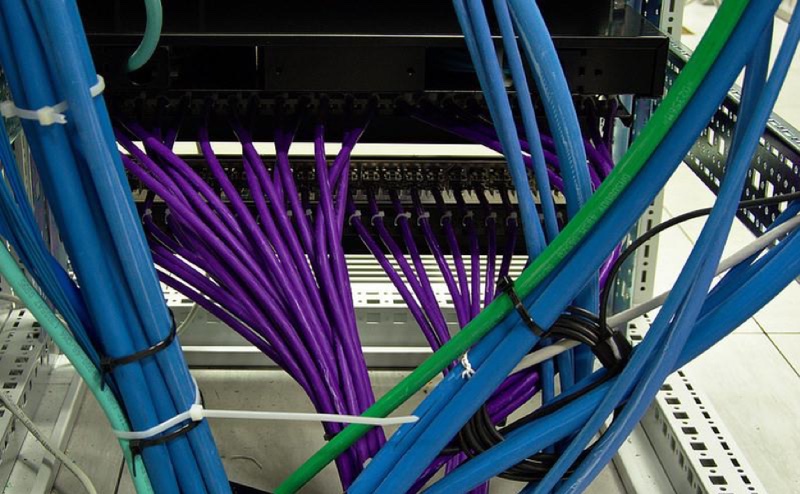Networks are essential to modern businesses. Learn how navigating these networks with a Cisco CCNA Certification can open up career opportunities for you.
The IT world possesses the kind of growth that is rarely seen in other similar industries. Better yet, this growth continues to escalate on a yearly basis. Making the move now to the IT field, and especially to the world of networking, will prove to be very lucrative as the career and the salary is very rewarding.
Although the perks and benefits in the IT field are stimulating, it comes at a price, as the field is very competitive. One of the best ways to rise above the competition and to set yourself apart, is by obtaining the right certifications.
The Cisco Certified Network Associate (CCNA) certification will set you miles apart from other IT professionals, as it lends you a certain level of proven knowledge above your peers. Apart from the professional stance you will obtain from certification, you will also gain a sure foundation in the theory and practice of networking, enabling you to solve problems more quickly.
Let’s take a deeper look at how earning a CCNA Certification will boost your salary.
Your Earning Potential with A CCNA Certification
IT Networking jobs command high salaries. The salaries continue to grow yearly, mostly driven by the supply-demand factor. The fact that there is a higher demand for trained professionals than there are professionals available is reason enough to catapult salaries to almost $100k a year.
According to payscale.com, Cisco CCNA certified professionals earn salaries ranging from $60,000 to $95,000 depending on the experience they have.
Apart from that, many large-scale enterprises would offer rewards or recognition to their employees upon completion of a Cisco CCNA certification.
Obtaining the Cisco CCNA certification will definitely increase your earning potential.
How to Get Cisco Certified
When starting out it doesn’t really matter whether you have networking knowledge or not. You could start out with the Cisco Certified Entry Networking Technician or CCENT certification. Gaining this will show that you have the basic knowledge needed to install and operate a small network, as well as maintaining entry level network security.
After obtaining your CCENT, you could proceed to 3 further levels, conveniently called the Associate, Professional and Expert levels. The Associate level is also called the CCNA, the Professional the CCNP, and the Expert the CCIE.
The CCENT exam can be taken in either 1 or 2 parts. It is recommended that you do it in 2 parts if you’re not so technically minded. This allows you to break up your training and exam in manageable chunks.
Obtaining the CCNA is required before entry can be granted to other Cisco qualifications. With each certification, you follow a uniform path completing the following modules: routing and switching, security, design, voice, wireless and storage networking.
What You Will Learn
CCNA training prepares you to understand computer networking as well as a moderate amount of computer science. The CISCO examination system has gone through several phases involving the introduction of various types of CCNA’s. CCNA Routing and Switching is the qualification that is nearest to the original CCNA.
Other types of CCNA’s include programs that focus directly on security, design, data center technologies, cloud, industrial plant, wireless and service providers. The content of the exams is proprietary. Learning for the exams is offered via various training partners utilizing books by Cisco Press.
Certification camps are available for Cisco CCNA certification, so you can get the training you need in an environment specially designed for that purpose.
The CCNA exam tests knowledge and skills in the basics required to install and operate a small network. Also included is the ability to connect to a WAN (wide area network), how to implement network security and the different types of networks. Network media, the fundamentals behind routing and switching, and TCP/IP (transmission control protocol/ internet protocol).
Other topics include the OSI models, IP addressing and WAN technologies.
How to operate and configure IOS devices and how to extend switched networks with VLAN’s (virtual local area network) are essential learning as a part of this certification. Also included is determining IP routes, and managing your static IP traffic with access lists and how to establish point-to-point connections and establish frame relay connections.
Having dug into an overview of the CCNA certification, you might be wondering what the best course of action should be for you to take. There are several options available to take, but one of the best recommended ways is by completing a boot camp.
Bootcamps are popular as they give you practical hands-on training, a quality that is crucial to be successful in this industry.
Conclusion
Many companies have put requirements in place which compel applicants to have Cisco training and CCNA certification. Just to understand how important the CCNA qualification is, consider the fact that in most enterprises, having the certification will get your foot in the door, without having much experience in the field.

